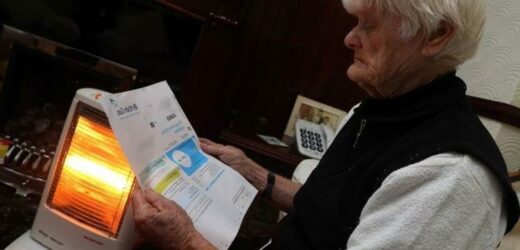PMQs: Johnson urged to cut VAT on energy bills by Wilson
We use your sign-up to provide content in ways you’ve consented to and to improve our understanding of you. This may include adverts from us and 3rd parties based on our understanding. You can unsubscribe at any time. More info
This comes as fears of more surging bills have soared after concerns of a rising energy price cap emerged. This would see the minimum tariff and energy supplier their customer soar to £2000 in April. But bills have already started to go up for millions. Back in October 2021, an energy price cap increase ramped up bills by £139.
And now that people are stuck at home due to the pandemic, people are worried that they will have to spend even more on their energy bills during a cold winter.
Research by Electric Radiators Direct discovered that working from home could cost UK employees almost £30 more per month than commuting would, and £360 annually.
Their survey also found that more than one in five UK employees said they will not turn the heating on while working from home this winter because of these extra costs.
Almost half said they will be more mindful of their overall energy consumption.
And nearly a fifth said they will invest in smart heating solutions to better monitor energy usage this winter.


Employees in the South East are most worried about their winter energy consumption while working from home.
Over half of respondents said they will be more mindful of how much they use.
Around half of respondents from the South West also said this, as did Scottish respondents.
Currently, Britons can claim £6 per week tax relief from the Government on job expenses, which includes gas and electricity costs while working from home.
But even when factoring this in, commuting would still prove to be cheaper for some.

Commenting on the findings, Stephen Hankinson, Managing Director at Electric Radiators Direct said: “Our data has shown that the energy price hike will push the majority of the nation to be more mindful of their consumption overall, while some will look to invest in smart heating solutions.
“While it’s almost inevitable the current energy crisis will impact us and our bills in some capacity, there are several ways to keep costs down and save energy while working from home, which is good for our planet and our wallets.
“For example, smart electric heating solutions allow you to control temperatures and make sure unused rooms aren’t unnecessarily heated, while some even allow you to access your energy consumption statistics through an app, so you can keep tabs on usage and know exactly how much money is going out.
“While this is harder to do with gas as it predominantly uses centralised control, meaning all of your radiators are managed collectively, choosing a lower thermostat temperature that still feels comfortable can be a good way to keep costs down.”
DON’T MISS
EU ‘sleepwalking’ into Putin’s energy crisis [INSIGHT]
Scientists warn that solar storms can threaten life on Earth [REPORT]
Omicron warning issued as ‘organ complications’ linked to Covid [REVEAL]


The Government has also been scrambling for other ways to keep energy prices down.
At least 20 Conservative Party members called on the Prime Minister to cut the VAT on energy bills.
This was a promise Boris Johnson previously made during the 2016 Brexit referendum campaign.
VAT is levied at 5 per cent on energy bills.
But now, the Prime Minister has ruled out this measure.
He said during a televised Downing Street press conference: “The argument is that it’s a blunt instrument and the difficulty is that you end up cutting bills for a lot of people who perhaps don’t need the support in quite the direct way that we need to give it. We need to help people who are in fuel poverty the most.”
Source: Read Full Article

